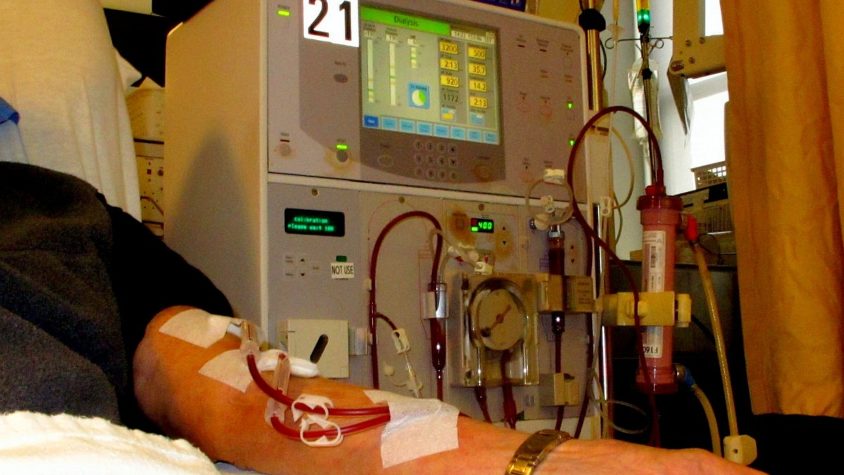By Veronica Golden 1. Be patient with your body. Often times there is an adjustment to dialysis when you first start. Your body is used to accumulated toxins in your body. Sometimes you feel worse before you feel better. There are bumps in the road for even the most “seasoned” dialysis patient- ...
By Veronica Golden
1. Be patient with your body.
Often times there is an adjustment to dialysis when you first start. Your body is used to accumulated toxins in your body. Sometimes you feel worse before you feel better. There are bumps in the road for even the most “seasoned” dialysis patient- including vascular access issues, side effects from medication, etc. Make dialysis a priority and your issues will become less and less.
2. Educate yourself about dialysis.
Know the diet and fluid restrictions. Talk to the Doctor, Dietician, and Nurses if you have questions. You will feel more comfortable, in control, and at ease when you know about how your kidney functions and the job the dialysis machine is doing.
3. Acknowledge the support you have.
It’s not easy to come 3x/week for 3.5 hours per treatment, especially if you have other obligations. Say thank you and cherish those who may drive you, or buy you a snack, or ask how you are doing. Somebody cares about you, and it’s that TLC that helps to keep you going at times when you feel burdened or frustrated.
4. Mental health
If you’ve been feeling depressed or anxious, reach out to the Social Worker at your dialysis center for help. We can help you resolve issues you’re having in the moment, and we can refer you to ongoing counseling sessions, if you’re willing. There is the Kidney Support Group offered every 3rd Thursday of the month on the 3rd floor in Conference Room C at ECMC Hospital. There are also many options of counselors in the WNY region that you can be referred to. The more you express your feelings, the better you will feel.
5. Make sure you have a ride to dialysis.
There are different options including Medicaid taxi, NFTA Bus or Paratransit, Erie County Senior Van, or family/friends. Some factors that need to be considered are if the person in the chair in front of you has complications or if you need extra time to stop bleeding (reference Commandment #1).
6. Insurance Changes
Be aware that insurance providers change their plans occasionally due to a number of different factors. Consult a professional when you have to or need to change your insurance company or plan to have better coverage of prescription medications or co-pays for medical visits. Erie County Senior Services has an insurance expert who can be reached at 716-858-7883 if you have further questions about which insurance plan will benefit you most with your medical needs.
7. Befriend at least one other person on dialysis.
While your waiting in the lobby or at the scale, say “hi” or “How are you doing?” to someone you see. We all have something in common. It’s nice to know someone and build a rapport with someone while you’re here –it will make those 3.5 hours easier to bear.
8. Don’t be afraid of the HCP question.
It’s important for everyone, whether on hemodialysis or not, to have a Health Care Proxy (HCP). Accidents are not scheduled and unfortunate circumstances are not planned. That’s why it’s important to have a plan in place that is discussed with your family member or friend so there is less confusion when decisions have to be made and you cannot speak for yourself.

